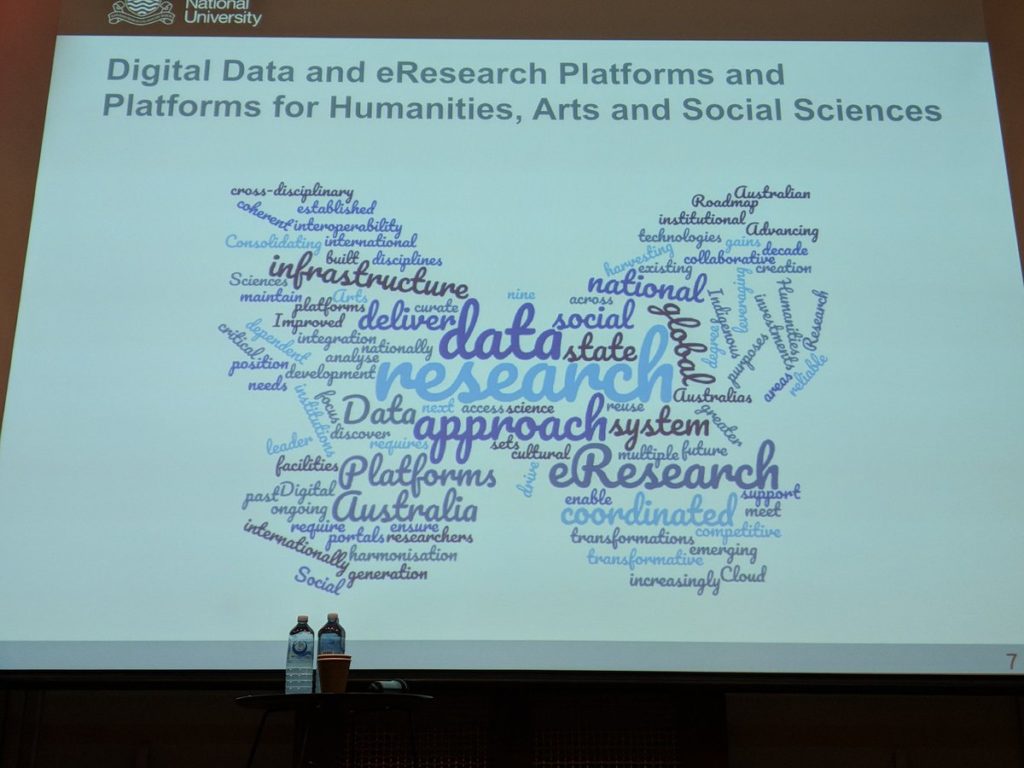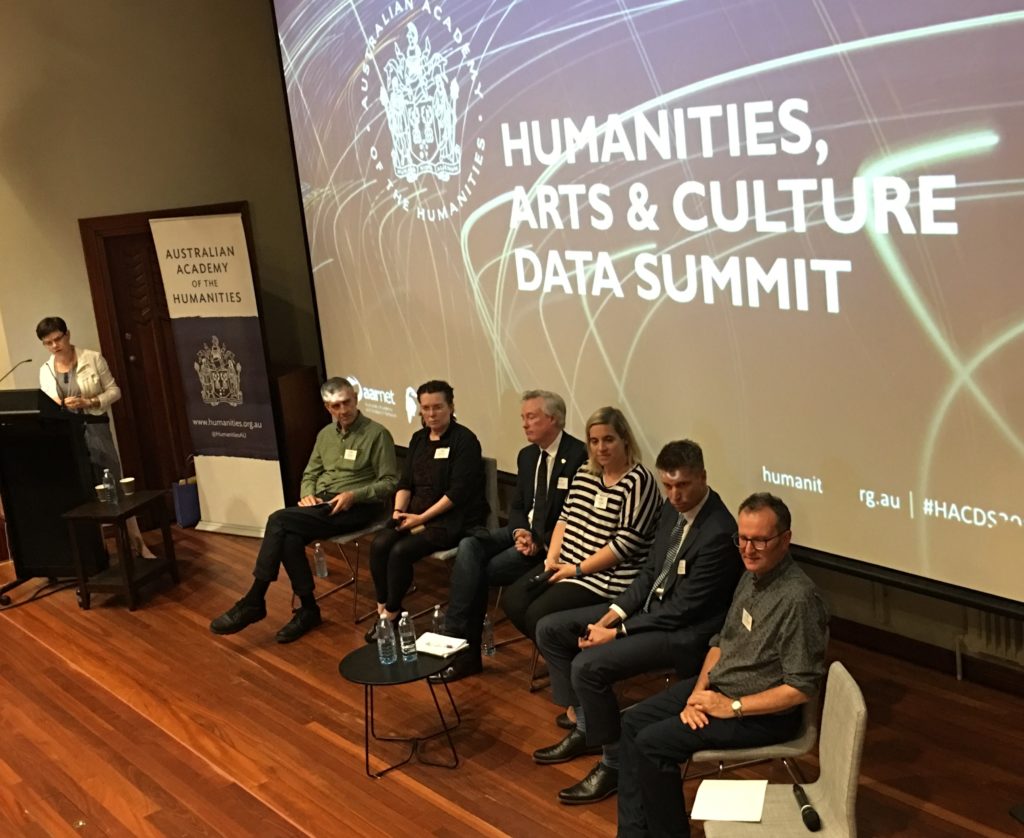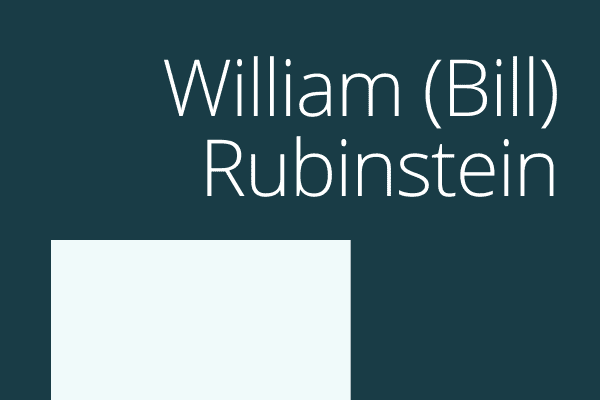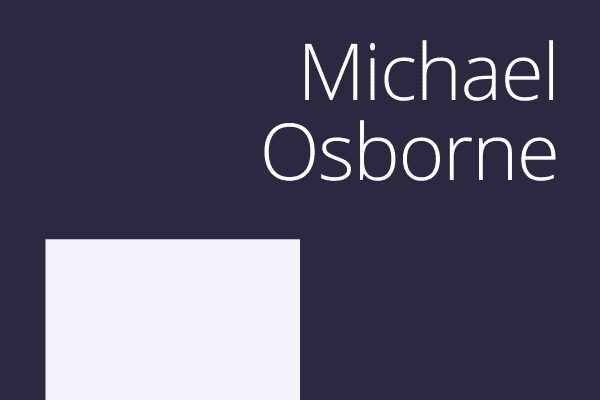To build on innovative projects and institutional investments over the last decade to address this issue, the Academy recently hosted a two-day Humanities, Arts & Culture Data Summit in Canberra – the first event of its kind in Australia.
The summit set out to bring the sector together to inform and advance a national strategic blueprint for humanities, arts and culture (HAC) research infrastructure – the platforms and investment needed to digitally preserve and share Australia’s vast social and cultural data enabling all Australians to easily access these resources for a wide range of social, cultural, economic, health, and environmental benefits. More than 100 delegates attended the event from universities, peak bodies, national cultural and collecting institutions, government departments, key projects and organisations, and National Collaborative Research Infrastructure Strategy (NCRIS) facilities.
The event built on work led by the Academy and in collaboration with the Academy of Social Sciences in Australia (ASSA) and galleries, libraries, archives and museums (GLAM) sector colleagues, to inform the development of and investment in a national HAC research infrastructure platform – as part of the national investment and planning process being led by the Commonwealth Department of Education and Training.
The summit explored a range of issues including:
- Current practices, platforms and investments supporting HAC research data and curation lifecycles.
- Critical and ethical approaches to research data management.
- Building next-generation digital platforms for collections and researchers, as well as future knowledge and skills needed by HAC researchers.
- Visions for a national strategic collaborative agenda for HAC research.
In grounding these issues in current practice, several current HAC research infrastructure platforms were presented as case studies:
- PARADISEC – Australia’s digital archive for endangered languages all over the world, with 1149 languages currently represented in the collection.
- Trove – the National Library of Australia’s much-loved research platform, the fourth most visited government website at around 60,000 visits a day. Trove not only hosts a significant collection but also supports ground-breaking research into HAC initiatives such as the history of the criminal trial in Australia (The Prosecution Project).
- The Social, Cultural and Informatics Platform (SCIP) – bringing digital expertise and humanities, arts and social sciences (HASS) knowledge together at the University of Melbourne.
These examples and others highlight the innovation of researchers and institutions and the energy and imagination of the sector in unlocking Australia’s rich and highly valued HAC data.


Arising out of the summit was a shared appetite to work together on a collaborative agenda and future opportunities were canvassed with delegates, including:
- A sector-led strategy to drive the digitisation of data and collections, improving data linkages and accessibility, software and tools, and skills and capability building.
- Driving knowledge exchange in Australia and internationally, as well as underwriting the development of next-generation HAC research training and careers.
- The development of a National Research Data Cloud and its role in facilitating and integrating HASS research networks in platform development.
- Bringing together HASS and STEM expertise in a ‘Time Machine for Australia – a “platform for the past 65,000 years of Australia’s human and environmental history, from Indigenous cultures and ‘country’ (non-human kin) to later arrivals” enabling deep knowledge of past trends to “improve predictions of environmental and societal trajectories” (Professor Bert Roberts).



